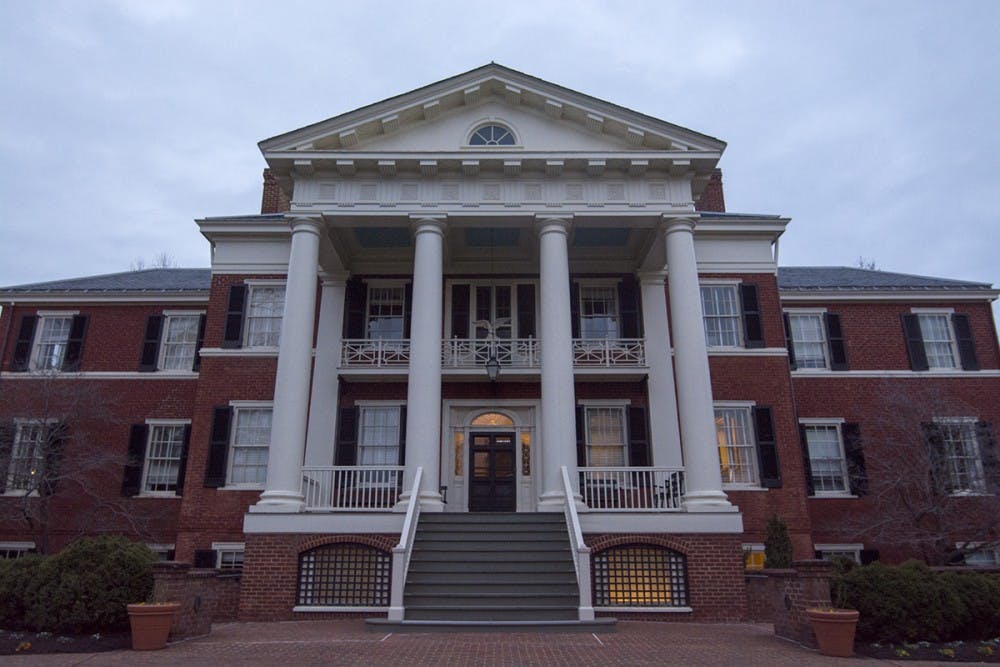The Miller Center for Public Affairs hosted a panel conversation on “Power in the age of populism” with author Bruce Katz Friday. The conversation focused largely on the concept of power cities, or cities comprised of innovative ideas and financial sustainability.
The conversation discussed key points in Katz’s recent book “The New Localism: How Cities can Thrive in the Age of Populism,” co-written with Jeremy Nowak, a Distinguished Visiting Fellow at Drexel University’s Lindy Institute for Urban Innovation. The conversation focused particularly in on the shift away from cities dependending on the national government.
Friday’s event was a part of a new series titled “The Miller Center Presents.” The new program follows the ending of American Forum, the Miller Center’s interview-based television show discussing American politics hosted by Miller Center senior fellow Doug Blackmon and broadcast on PBS. American Forum’s last episode aired March 4 due to lack of funding, however, the Miller Center will continue hosting similar events under the new program.
Guian McKee, an associate professor of presidential studies at the Miller Center, introduced Katz and concepts in his new book.
“What Bruce Katz really offers is a model at the local level [of] finding new ways to build partnerships across multiple spheres — civic, political, private — to find solutions to problems in their communities,” Mckee said. “Our hope was to generate a conversation around these issues to really give people a better sense of where the country is finding solutions that we often don’t see.”
McKee further explained how Katz explores several perspectives in his book — celebrating innovation and technologies within cities while offering solutions on how cities can finance themselves independent from the federal government.
“He’s also very aware that you can’t continue developing an economy that does not find a way to solve the larger problems of equity,” McKee said. “We especially have to [understand] that when we can’t assume that there will be solutions or finances coming from the federal level.”
Before the conversation began, Katz gave an overview of his book and the new responsibility cities have in solving issues relevant within the community. Katz explained how the book argues cities have undergone a “structural shift” in the world, in which the role of nation states and city states have reversed.
“Our book was about a city-led world where what you’re searching for is not the perfect rule or the perfect policy,” Katz said. “What you’re really searching for are norms and models, about how cities grow government and finance themselves.”
Katz further explains this argument in his book by providing three case studies of major cities — Pittsburgh in terms of its growth, Indianapolis on governance, and Copenhagen regarding finance.
Another issue Katz addressed is the idea that cities are seen as networks separate from the government. With the rise of what he calls “global cities,” Katz examined how these cities allow for cities to reach new heights in ideas, innovation and capital.
In reference to the rise of populism, Katz argued pragmatism and regaining trust among the people will combat the rise of populism.
“I think we will be an antidote to populism,” Katz said. “I think that we will respond to populism with infectious pragmatism. And we’ll show the citizenry that we can solve problems, restore trust, ultimately that will change our politics.”
Kathy Galvin, a 1986 University Architecture master's degree graduate, local architect, urban designer and member of Charlottesville City Council, joined the conversation on the rise of power cities. Galvin discussed the tendency for cities to be seperate from their county and the next step being to establish a better connection among the two.
Third-year Engineering student Nathaniel Grevatt said he particularly enjoyed Galvin’s comments and response to issues discussed, such as the lack or inability of placing aesthetics within Charlottesville zoning.
“I was fascinated by the presence of the Council member here,” Grevatt said. “I thought that was a really cool ‘on the fly’ integration.”
The conversation also featured University Law Prof. Richard Schragger, who applauded Katz on his ability to discuss the role of power among cities. Schragger commented on how city efforts for regulation or legislation are often overridden by state legislators.
“What state legislators are able to do very regularly is to preempt local legislators,” Schragger said. “And we see that even in Charlottesville.”
In an interview with The Cavalier Daily, Katz said the main point he hoped the audience understood is the ability of cities to stand up and create change within the community.
“I would say that the most important takeaway is that cities have agency,” Katz said. “That they can actually stand up and take responsibility for multiple challenges … I think we just have to take responsibility at this level in our society.”
The next event in the series is scheduled for March 22, featuring an open conversation with Khizr Khan.





